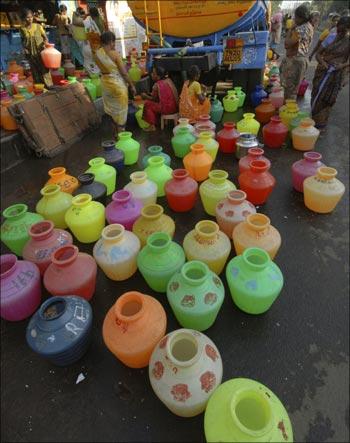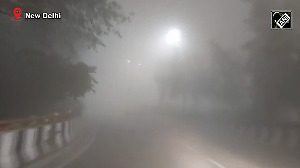
Water, water everywhere, and so many committees to deal with it. On top of so many ministries and committees that think about water, the government has decided that India needs a Water Mission.
Apart from the water resources ministry, the ministries of rural development, agriculture and environment and forests are actively involved in water conservation work. Besides, the river basin authorities are also supposed to look after water management in their respective areas.
In addition, a National Rainfed Area Authority has been created under the joint chairmanship of the ministers of agriculture and rural development for promoting rainwater harvesting.
The immediate task entrusted to the proposed water mission is to put all the data on water in the public domain to create better awareness of the issues concerning water and to mobilise mass-scale action on water conservation and augmentation.
This job can surely be performed either by the water resources ministry or the Central Water Commission, an appendage of this ministry, which is in possession of much of this data.
The other task reportedly cut out for the mission is to focus on groundwater, especially in areas where it is being over-exploited. For this, too, groundwater regulators and groundwater development boards are already in place in most states.
True, despite the existence of so many agencies, precious little is actually happening on judicious management of water. But what will a new mission do that all these bodies have failed to thus far?
Specially given the dismal track record of so many other "missions" that have been created to worry about something or another.
The oilseeds and pulses technology mission has been in place for nearly three decades now but the country is still woefully deficient in both these essential items.
The national food security mission, created by the United Progressive Alliance (UPA) government in its first term in office, has failed to make an impact so far.
In fact, the growth in food production has actually slowed down ever since it came into existence. The national solar mission, which has been handed over an ambitious target of creating additional power production potential of 22,000 Mw by 2022 through solar energy, too, seems unlikely to hit the goal despite hefty subsidies because of lack of cost-effective solar power technology.
Moreover, water is a state subject under the Constitution. Therefore, a centrally constituted water mission can, at best, serve as a facilitator for the state governments or other agencies concerned to do the needful for promoting efficient and sustainable use of water.
The same purpose can be served through any of the existing institutions, if suitably empowered, instead of creating a new bureaucracy. The need today is for convergence of efforts and resources of all these ministries and agencies towards the single goal of water conservation.
Efficient use of water or, in other words, deterring wasteful use of water, can be ensured through proper pricing of water. The National Water Policy, 2002, calls for fixing water rates in such a manner as to make users realise the real value of this scarce, albeit renewable, natural resource.
Economic pricing of scarce resources, like water and energy, can do more for their conservation than all the wisdom of government committees.
Image: Women wait to fill their containers with drinking water supplied from the municipal corporation tanker.
Photograph: Babu/Reuters












 © 2025
© 2025